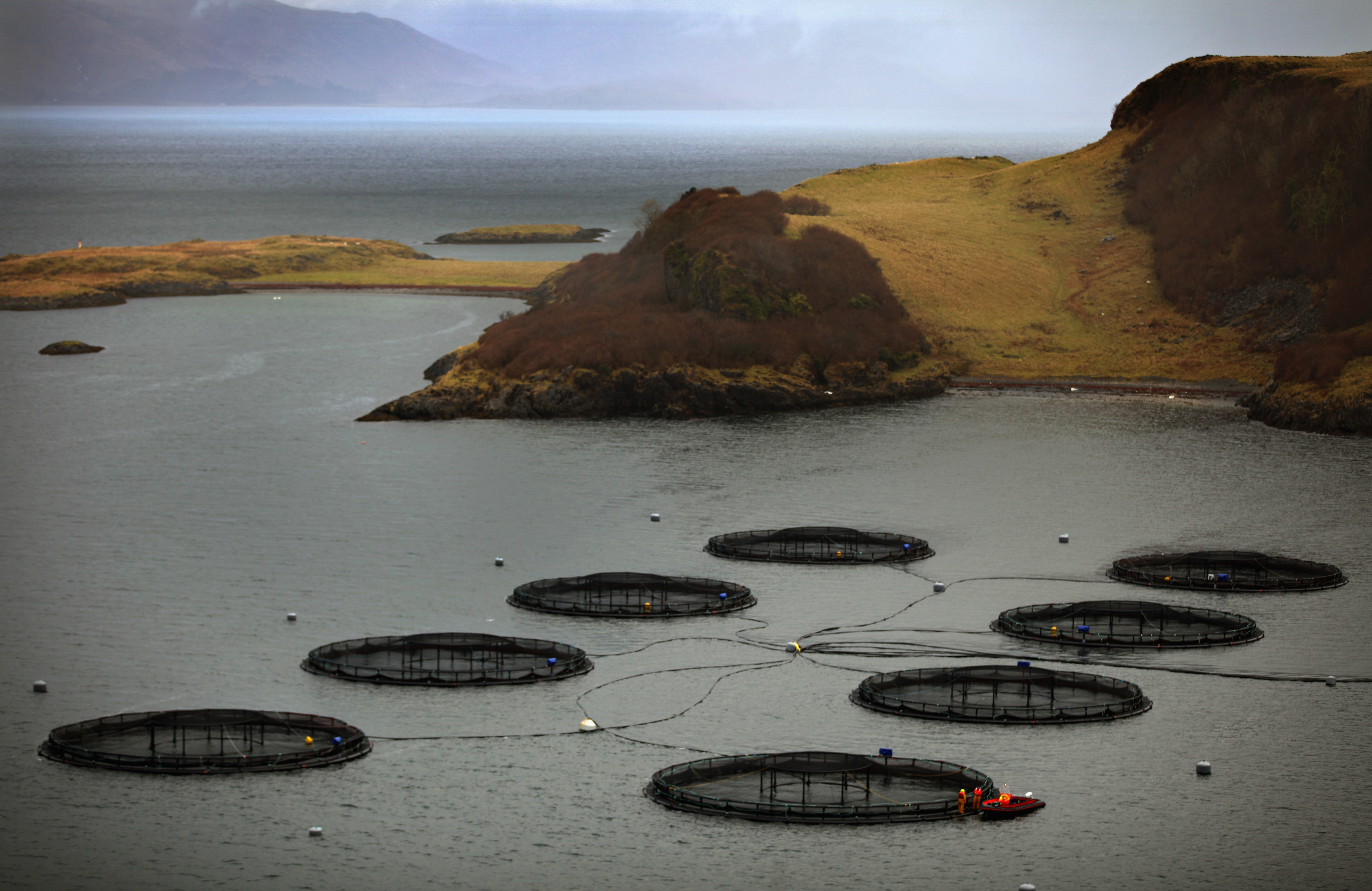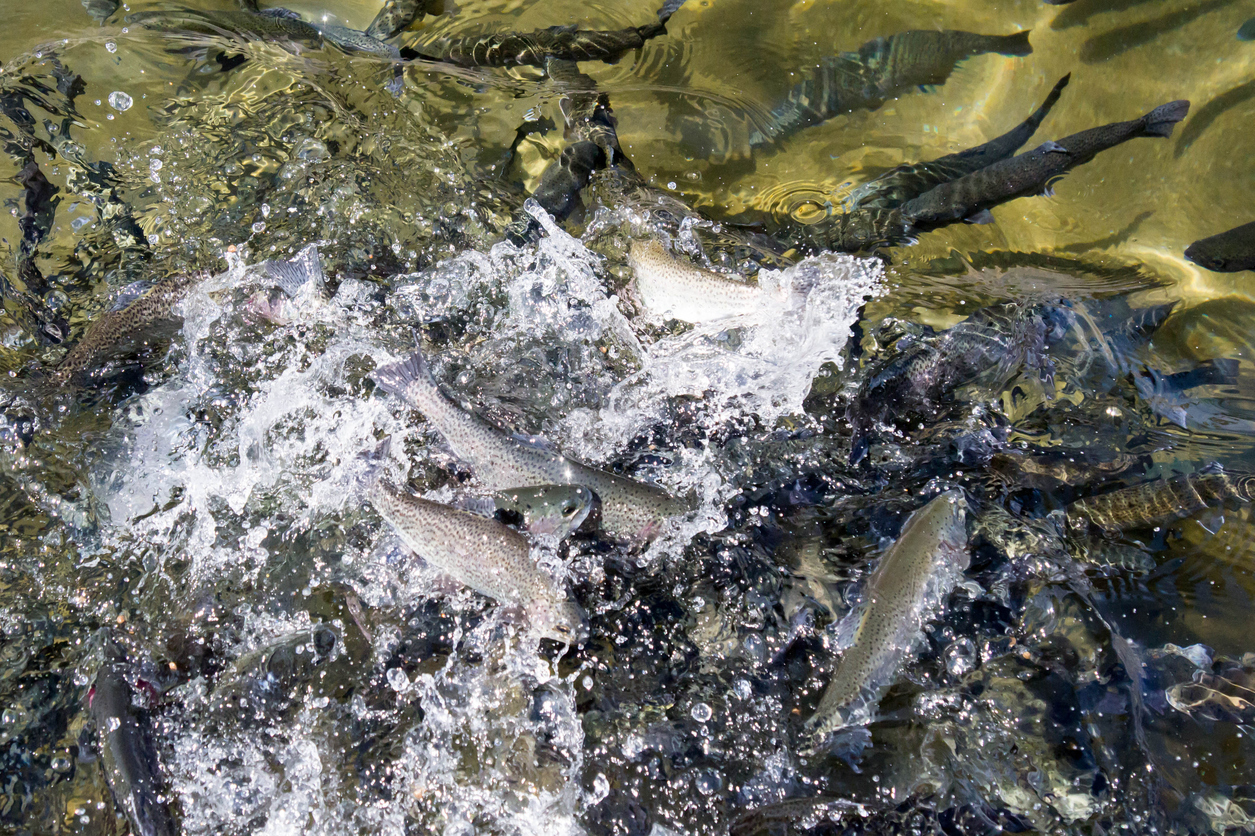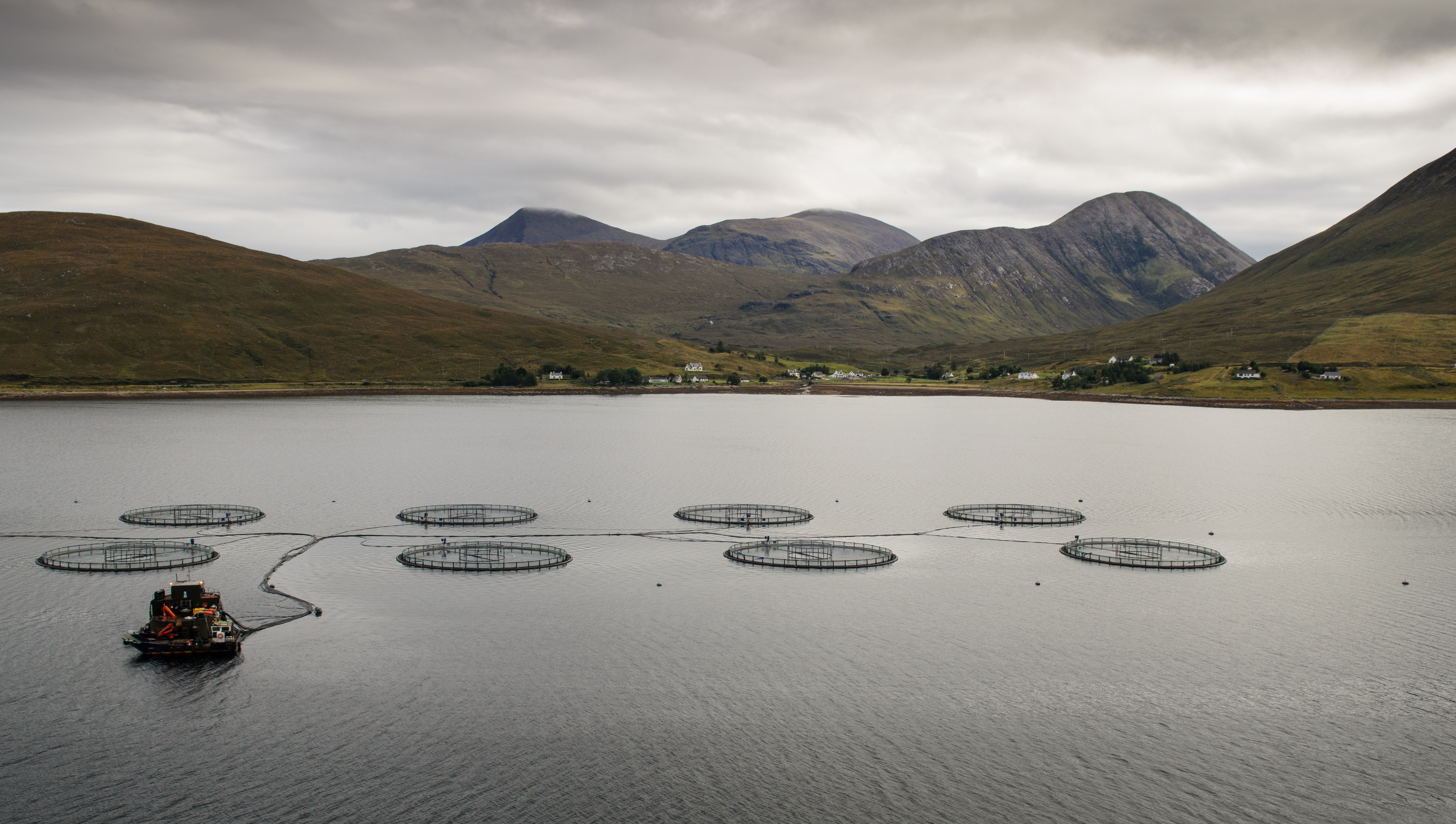
MEDICINE used at Scottish salmon farms is significantly impacting local marine environments, according to research.
The conclusion has been drawn in one of Scotland’s largest and most comprehensive marine research projects into aquaculture by the Scottish Environment Protection Agency (Sepa).
They are now calling for tighter regulation to be placed on salmon farming, after the study proves wild marine life is not adequately protected by current approaches.
The survey examined environmental impacts from eight Scottish fish farms.
302 chemical samples were analysed from 93 sample stations and 296 ecological samples from 142 sample stations.
Samples for chemical analysis were analysed for the sea lice medicine Emamectin Benzoate (EmBz) and Teflubenzuron (Tef), last used in 2013.
The medicines were detected in 98% and 46% of samples respectively, with residues more widely spread in the environment around fish farms than had previously been found.
The research also concluded that the impacts of individual farms may not be contained to the vicinity of individual farms.
The research survey was published today (Wednesday 7 November) as part of proposals by SEPA for a revised regime that will strengthen their regulation of the sector.
The proposals follow 16 months of work by the agency, including a 2017 consultation, and two Scottish Parliamentary committees, one of which concluded that “the status quo is not an option”, adding that the industry’s expansion goal “will be unsustainable and may cause irrecoverable damage to the environment” unless governance and practices are improved markedly.
Read more: What impact is Scottish fish farming really having on the environment?
Scotland is the largest Atlantic salmon aquaculture producer in the European Union and third in the world after Norway and Chile. A contributing factor to this is Scotland’s reputation for a high quality environment and abundant freshwater resources.
Data published last month showed that the annual economic value of Scottish salmon passed the £1bn mark for the first time.
The industry supports 10,000 jobs, many of which are in rural communities including the highlands and islands.
Sea lice on farmed fish has become a major problem which has been identified as threatening wild populations of salmon.
In response, the industry is currently innovating through the use of ‘non medicinal farming’ using wrasse, a small fish that tackles sea lice, full or partial containment and enhanced fallowing.
Dr Sam Collin, marine planning officer for the Scottish Wildlife Trust, told the BBC: “Bringing in these precautionary approaches that Sepa is proposing is good but we are concerned, disappointed really, that they are only being applied to new farms.
“They don’t really address the existing farms that are out there using these chemicals.
“We would much prefer to see a retroactive approach where they address an impact that is already happening.”
Sepa’s proposals for strengthening the regulation of the sector include tighter standards for organic waste deposited by fish farms as well as placing farms in less environmentally sensitive waters. This could lead to farms being places in deeper, more fast flowing waters.
WATCH: “Shocking” footage shows diseased and damaged fish on Scottish salmon farm
Terry A’Hearn, Chief Executive of the Scottish Environment Protection Agency, said:
“Whilst a high quality environment and abundant freshwater resources are vital to Scotland’s aquaculture sector, it’s an industry that attracts polarised positions, from those who cite its economic contribution to those who stridently oppose its existence.
“As one of a number of organisations regulating finfish aquaculture, SEPA is clear that our job is to make sure environmental standards protect the marine environment for the people of Scotland and we make sure the industry meets those. That’s unequivocally our focus.
“Consequently across the last sixteen months we’ve done more science, more analysis and more listening than ever before. Whilst we’re seeing innovation in the sector, we’ve concluded that Scottish salmon farm medicine is significantly impacting local marine environments which increases the now substantial weight of scientific evidence that the existing approaches do not adequately protect marine life.
“We agree that ‘the status quo is not an option’ which is why we’re announcing firm, evidence based proposals for a revised regime that will strengthen the regulation of the sector. As part of a Scotland-wide consultation, we’re now keen to hear directly from individuals, interest groups, NGOs, communities, companies and others on their views on the proposals as we move to strengthen our regulatory approach.”
Interim restrictions will limit the continued use of chemicals at new sites until the conclusion of a scientific review into the impact of medicines on the environment.
Julie Hesketh-Laird, chief executive of the Scottish Salmon Producers Organisation, said: “This is a rigorous report setting out the modern regulation the industry needs enabling it to grow sustainably over the long term.
“It is the culmination of years of collaborative work between the Scottish salmon farmers and Sepa to develop a new framework for the gradual and careful expansion of the Scottish salmon sector.
“We share Sepa’s vision of an innovative, sustainable salmon industry underpinned by clear and accurate regulation. This report will remove many of the barriers preventing the development of more modern facilities further from the shore and we look forward to Sepa’s support as the industry makes this change.
“The discovery of residues is important information but it should be remembered that salmon farmers were operating to Sepa guidelines throughout the past five years.
“We look forward to contributing to the consultation.”

Enjoy the convenience of having The Sunday Post delivered as a digital ePaper straight to your smartphone, tablet or computer.
Subscribe for only £5.49 a month and enjoy all the benefits of the printed paper as a digital replica.
Subscribe
